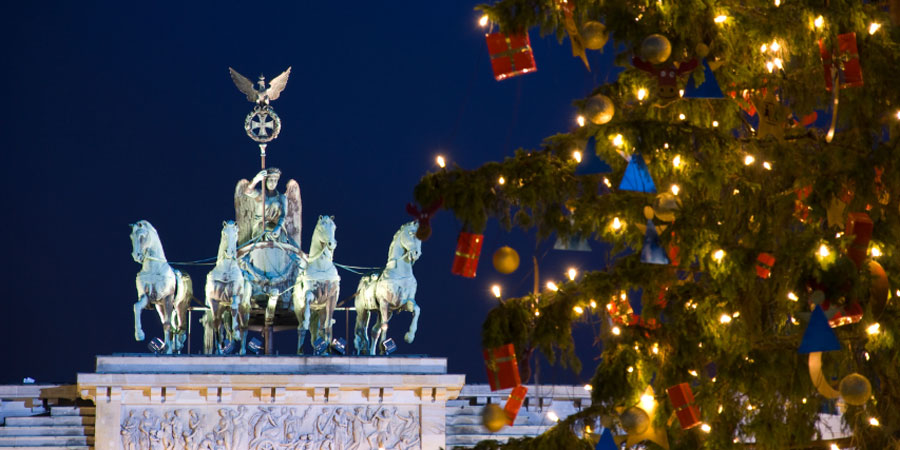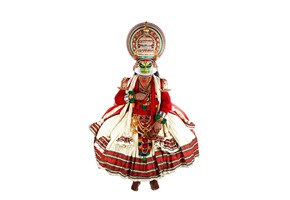The holiday season in Germany and Austria is a magical time filled with festive cheer, enchanting traditions, and a touch of historical charm. From the iconic Christbaum-Loben to the spooky yet fascinating Krampus in Austria, these countries have unique ways of celebrating Christmas that are sure to capture your heart.
Germany
Famed for its festive fir trees and Christmas markets, Germany is a delightful destination for anyone looking to soak up the season's blessings. Boasting its own range of fascinating traditions to celebrate the most magical time of the year, we've picked three of our favourites.
Christbaum-Loben
Germany, the birthplace of the Christmas tree tradition, offers a quirky post-Christmas celebration known as Christbaum-Loben, or 'Christmas tree praising.' On December 26th, friends visit each other's homes to admire their beautifully decorated trees. The twist? Compliments are rewarded with a small glass of spirits, creating a tipsy yet joyous atmosphere reminiscent of Christmas carolling.
Christkindl
Whilst children in the UK are busy writing to Santa, many German children instead send letters to Christkindl, or 'the Christ Child', asking for gifts. Popularised by Martin Luther, in an attempt to dissuade families from engaging with the figure of St Nicholas, Christkindl is a female child said to embody the qualities of Christ. Children will leave their letters to Christkindl on their windowsills during Advent, often decorated with glitter or pictures.
In Nuremberg, one girl is chosen each year to represent Christkindl, who then performs important duties during Advent - from visiting children in hospital, to making television appearances, and officially opening the Nuremberg Christmas Market.
St Nicholas' Day
St. Nicholas, the figure behind the legend of Santa Claus, is believed to deliver gifts to German children who leave out their shoes for him to fill. Instead of the traditional Christmas Eve visit, St. Nicholas brings his presents on the night of December 5th.
Children wake up on December 6th to find their shoes filled with small gifts, like chocolate or nuts. However, misbehaving children should be cautious, as Knecht Ruprecht, St. Nicholas' companion, is said to leave twigs in the shoes of those who haven't been good.
Austria
Whilst Austria shares some traditions with neighbouring Germany, this delightful nation has a whole host of festive customs of its own - including some rather spooky additions.
Silent Night
Written in Austria in 1818, 'Stille Nacht', or 'Silent Night', is still a favourite carol to this day. On Christmas Eve, it's traditional for Austrian families to gather around the Christmas tree and sing this hymnal, officially beginning the Christmas celebrations.
Christmas Eve is then usually spent at home, as the shops, theatres and cinemas of Austria close early on this special night - transforming the big cities and creating a true 'silent night' across the nation.
Krampus
Whilst Austrian children celebrate St Nicholas in a similar manner to their German counterparts, the punishment for bad behaviour is considerably more frightening than finding twigs in your boots. Krampus is a demonic figure, who dates back to pre-Christian times.
Often pictured as a hairy, horned beast, Krampus is said to beat unruly children with branches, before stuffing them into a sack and kidnapping them. Legend has it that Krampus appears on December 5th, the night before St Nicholas' Day, when presents are being distributed to good children.
Food and glühwein
In Austria, Christmas is a time for indulging in culinary delights. Carp, a traditional dish, takes centre stage in the Christmas meal, honouring the Catholic tradition of abstaining from meat on holy days. Additionally, the delightful 'glühwein,' or mulled wine, warms both hearts and hands during the chilly holiday season.
The Christmas traditions of Germany and Austria weave warmth, joy, and a sprinkle of enchantment. Whether you're sipping 'glühwein' at a charming Christmas market or participating in the quirky Christbaum-Loben, these traditions make the holiday season truly special.
Fancy embracing the festivities of another country? Check out our Christmas Rail Tours.





